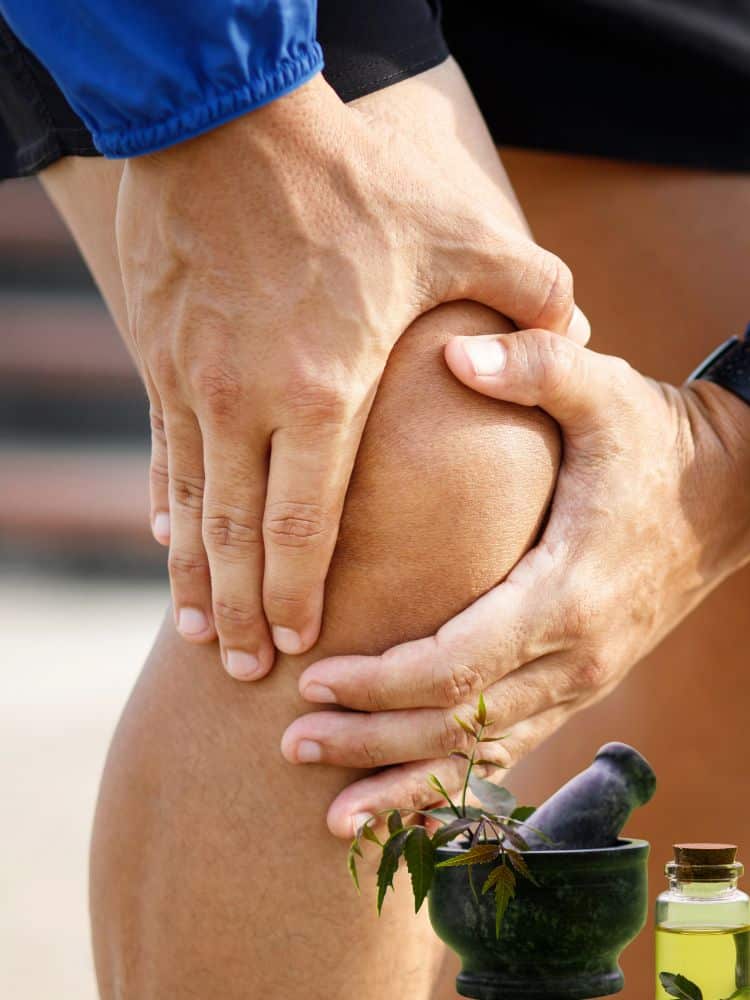Ayurvedic Treatment for Osteoarthritis in Coimbatore
Best Ayurvedic Treatment for Osteoarthirtis in Coimbatore
Ayurvedic treatment for knee pain at Avanika Ayurvedic focuses on balancing Vata dosha, reducing inflammation, and nourishing the joints. This involves a combination of external therapies like Abhyanga (oil massage), Pinda Sweda (herbal bolus), and Janu Basti (oil retention), along with internal therapies such as herbal remedies and dietary changes.

Pure Herbal

Evidence Based

Guranteed Results
Book An Ayurvedic Treatment for Knee Pain in Coimbatore.
If you are looking for an Ayurvedic Treatment for Osteoarthritis in Coimbatre Book an appointment and get free consultation.
Aim of Our Ayurvedic Treatment for Knee Pain
- Pain Reduction: To effectively ease the acute and chronic pain associated with various knee conditions.
- Inflammation Management: To help manage swelling, redness, and heat in and around the knee joint.
- Improved Mobility and Flexibility: To restore and enhance the range of motion and flexibility of the knee joint
- Strengthening Supporting Structures: To strengthen the muscles, ligaments, and tendons surrounding the knee
- Addressing Root Causes: To identify and treat the underlying imbalances in the body’s doshas (energies) that leads to knee pain.
- Preventing Recurrence: To provide long-term relief and prevent future episodes of knee pain
- Enhancing Joint Health: To nourish and rejuvenate the knee joint tissues
Benefits of Ayurvedic Knee Pain Treatment
- Personalised Approach: Ayurveda considers every individual to be unique and hence the therapies
- Natural and Safe therapies: Designed to balance doshas responsible for knee pain with minimal side effects.
- Holistic Approach: Addresses not just the symptoms but also the underlying imbalances in your body for long-term wellbeing.
- Effective Pain Management: Ayurvedic formulations and therapies are specifically designed to balance dosha thereby reducing discomfort in the knee joint.
- Reduction of Inflammation and Swelling: Ayurvedic treatments effectively address inflammation, a common cause of knee pain and stiffness.
- Improved Joint Mobility and Function: Through a combination of therapies and gentle exercises, we aim to restore and improve the range of motion and functionality of your knee.
- Strengthening of Supporting Tissues: Ayurvedic rejuvenative therapies strengthens supporting tissues, muscles, ligaments, and tendons around the knee, preventing recurrences
- Lifestyle and Dietary Guidance: A thorough diet and lifestyle modifications can significantly contribute to managing knee pain and preventing its recurrence.

What is Knee pain?
Knee pain is an umbrella term that includes a multitude of diseases, affecting people of all ages. It can range from a mild ache to severe, debilitating pain that limits daily activities such as walking, climbing stairs, and sitting or lying comfortably.
The knee joint is a complex structure comprising bones (femur, tibia, fibula, and patella), cartilage (meniscus and articular cartilage), ligaments (ACL, PCL, MCL, LCL), tendons, and bursae (fluid-filled sacs).
Pain can originate from any of these structures or be referred from other areas like the hip or lower back.
What are the symptoms of Knee Pain?
The symptoms of knee pain can vary widely depending on the underlying cause and severity. Common symptoms include:
- Dull ache to sharp, stabbing, or burning sensations, which can be constant or intermittent, and it can worsen with activity or at rest
- Inflammation within or around the knee joint can lead to noticeable swelling
- Stiffness in the knee especially in the morning or after periods of inactivity
- Difficulty bending or straightening the knee fully
- Clicking, popping, or grinding sensations during knee movement
- Instability or weakness in the knee
- Redness and warmth surrounding knee joint
- Difficulty bearing weight
- Night pain
What are the symptoms of Knee Pain?
The symptoms of knee pain can vary widely depending on the underlying cause and severity. Common symptoms include:
- Dull ache to sharp, stabbing, or burning sensations, which can be constant or intermittent, and it can worsen with activity or at rest
- Inflammation within or around the knee joint can lead to noticeable swelling
- Stiffness in the knee especially in the morning or after periods of inactivity
- Difficulty bending or straightening the knee fully
- Clicking, popping, or grinding sensations during knee movement
- Instability or weakness in the knee
- Redness and warmth surrounding knee joint
- Difficulty bearing weight
- Night pain
Causes
Knee pain can be triggered by a variety of factors, including:
Knee Injuries:
- Sprains and Strains
- Meniscal Tears
- Ligament Tears (ACL, PCL, MCL, LCL)
- Fractures
- Dislocation/Displacement of the kneecap or other bones in the knee joint.
- Bursitis
- Inflammation of the tendons around the knee (e.g., patellar tendonitis or jumper’s knee).
Arthritis affecting knee joint:
- Osteoarthritis
- Rheumatoid Arthritis
- Gout
- Septic Arthritis
Mechanical Problems:
- Fragments of cartilage or bone that can float in the joint space leading to joint pain.
- Iliotibial (IT) Band Syndrome where there is inflammation of the thick band of tissue that runs along the outside of the thigh.
- Patellofemoral Pain Syndrome leading to pain around the kneecap, often due to misalignment or muscle imbalances.
- Pain in the hip or knee can alter gait and put extra stress on the knee.
Other Conditions:
- Osgood-Schlatter Disease
- Baker’s Cyst
- Infections
- Tumors
Risk Factors
- Aging: Joint cartilage wears down over time.
- Genetics: Family history of arthritis may increase susceptibility.
- Poor Diet: Lack of essential nutrients weakens joints.
- Overuse or Strain: Repetitive movements may lead to degeneration.
- Stress and Poor Sleep: Increases inflammation and pain.
- Excess Weight or Obesity: Extra weight puts more stress on the knee joints.
- Previous Knee Injury: A history of knee injury increases the likelihood of future problems.
- High-Impact Sports or Activities: Activities that involve repetitive stress or sudden movements can increase the risk of injury.
- Lack of Muscle Strength or Flexibility: Weak muscles around the knee provide less support, and tight muscles can restrict movement.
- Certain Medical Conditions: Conditions like arthritis, gout, and infections increase the risk of knee pain.
- Occupation: Jobs that involve repetitive kneeling, squatting, or heavy lifting can put extra stress on the knees.
- Improper Training Techniques: Incorrect form or overtraining in the gym can lead to knee injuries.
Ayurvedic Perspective
Ayurveda considers knee pain as an imbalance of the Vata Dosha, particularly Vata located in the lower body (Apana Vata). Vata is the prime dosha responsible for movement, circulation, and the nervous system. Aggravated Vata can lead to degeneration, and pain in the joints. However, knee pain is often accompanied by either pitta or kapha dosha. If it is accompanied by pitta dosha it leads to inflammation, burning pain, and redness in the knee joint along with pain. Conditions like inflammatory arthritis may involve Pitta aggravation. If it is accompanied by kapha dosha, it can lead to stiffness, swelling, heaviness, and reduced mobility in the knee. Osteoarthritis, with its characteristic stiffness and reduced lubrication, often involves Kapha.
Ayurveda also considers the accumulation of Ama (undigested metabolic toxins) as a contributing factor to joint pain. Ama can circulate in the body and deposit in the joints, causing inflammation and stiffness.
Ayurvedic treatment for Knee Pain in Coimbatore
Ayurvedic treatment for knee pain includes comprehensive panchakarma therapies and herbal formulations. Specific therapies like oleation (abhyanga), localised knee therapy (janu basti), Sudation therapies like patra pinda sweda and churna pinda sweda are beneficial in managing knee joint pain.
External Therapies:
Abhyanga:
Applying medicated oils like Mahanarayan Taila or Dhanvantaram Taila to the affected areas helps balance Vata, improve circulation, and reduce joint pain and stiffness.
Pinda Sweda:
A warm bolus of medicinal herbs is applied to the affected joints, relieving stiffness, reducing inflammation, and improving joint mobility.
Janu Basti:
Warm medicated oil is held over the knee joint for a specific period, providing pain relief and improving joint function, particularly beneficial for knee osteoarthritis.
Lepa:
Herbal pastes made with anti-inflammatory herbs like turmeric, neem, and sandalwood are applied to the affected joints.
Churna Pinda Sweda:
A warm bolus of medicinal powders are applied to the affected joints, relieving stiffness, and improving joint mobility.
Kashaya or Dhanyamla Dhara:
A Warm decoction or fermented liquid is poured over the knee to ease joint pain
Taila Dhara:
Warm oil is poured over the knee, calming the knee joint, triggering healing and restoring joint health
Ksheera Seka:
Medicated milk is poured over the knee to strengthen the adjacent tissues
Internal Therapies:
Herbal Formulations
- Shallaki containing tablets
- Guggulu containing formulations like Yogaraja guggulu, Simhanada guggulu etc
- Muscle relaxant oils containing Gandhapura Oil, Neelgiri Oil like Myaxyl
- Dhanwantharam thailam, Balaswagandhadi thailam
- Kokilaksham kwatham
- Balaguluchyadi kashayam
Lifestyle Recommendations for Knee Pain
- Regular low-impact exercises like walking, swimming, or cycling can strengthen muscles and improve joint mobility.
- Weight management techniques as excess weight can put additional strain on joints.
- Avoiding smoking and alcohol
- Avoiding repetitive motions can prevent joint pain.
- Practicing stress management techniques as stress can worsen joint pain and inflammation.
Diet During Ayurvedic Treatment for Knee Pain
- Warm, cooked meals help counteract dryness and coldness in the joints.
- Healthy fats like ghee and sesame oil provide lubrication to the joints.
- Include anti-inflammatory like turmeric, ginger, and cinnamon as it helps counteract inflammation
- Include bone-strengthening foods like milk, almonds, and leafy greens to nourish the body.
- Increase intake of fruits and vegetables to enhance antioxidant support
- Reduce processed foods, added sugars, and unhealthy fats
How to Prevent Knee Pain
- Regular physical activity can strengthen your knee muscles and provide support to the knees
- Maintain a healthy weight as obesity can put extra pressure on the knees
- Wear protective devices to prevent knee injury. Injury to an arthritic knee can cause further damage to the joint. Injury to a healthy knee may lead to arthritis down the road.
- Treat knee injuries promptly without fail
- Do not ignore pain in your knee joint, as it may be an indication of osteoarthritis or any other forms of arthritis
- Practice good posture, maintaining good posture can avoid added stress over joints
- Be mindful in choosing your footwears, using high heels can put extra stress on your knees and may increase your risk of developing osteoarthritis
- Ensure healthy diet and lifestyle practices–including omega 3 fatty acids, calcium and magnesium rich foods can improve joint health. Additionally, avoiding smoking and alcohol helps support joint health
What are you waiting for...
Book an Appointment
Hours & Contact
28A Bharathi Park 7th Cross, Saibaba Colony, Coimbatore
641043
+9142229 69555
+9189039 69555
info@avanikaayurvedic.com
Open All Days 7:00 AM -7:00 PM
